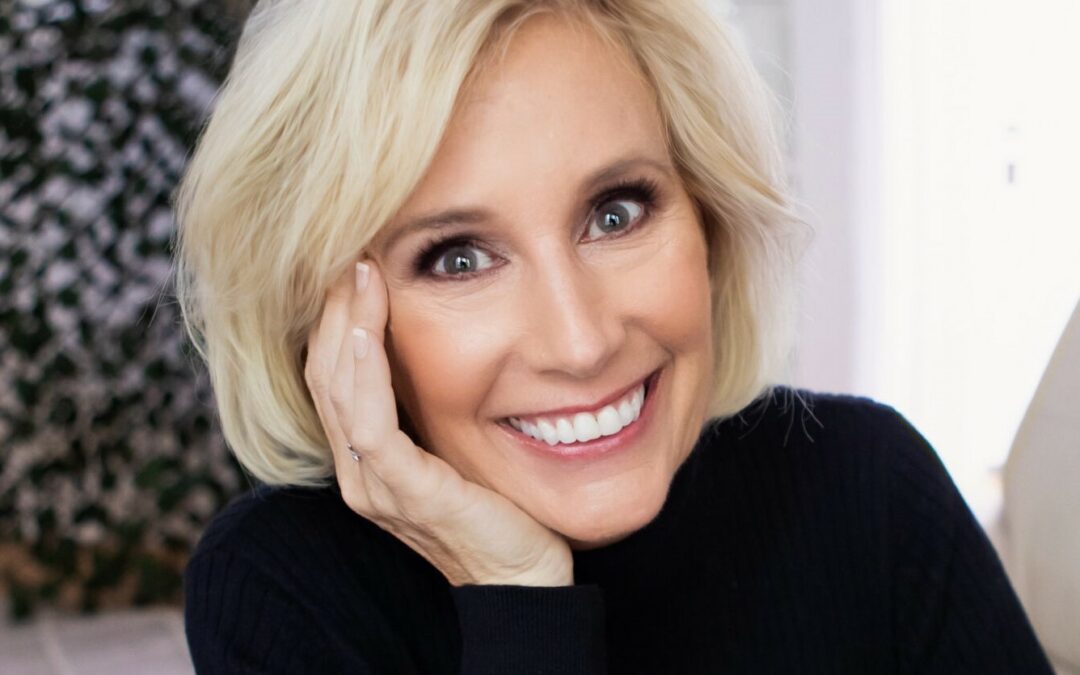Podcast: Play in new window | Download
Subscribe: Spotify | Email | RSS
The Power of Generosity at Work with Wendy H. Steele, CEO
On this week’s episode of the Leadership Habit Podcast, Wendy’s H. Steele and Jenn DeWall talk about the power of generosity at work. Generosity benefits people in the workplace more than you might think! It can benefit our brains, improve our ability to manage stress, and create a better world!
Meet Wendy H. Steele, Founder and CEO of Impact100 Global
Wendy H. Steele is the founder of Impact100, a grassroots global movement in women’s philanthropy. Since its inception in 2001, Impact100 chapters have invested more than $123 million in local nonprofits across more than 65 cities and countries. Wendy was recognized by Forbes in 2021 as one of 50 women over 50 who are leading the world in impact. She has also been a featured speaker at TEDxBocaRaton in 2014.
Most recently, Wendy has authored a new book, Invitation to Impact: Lighting the Path to Community Transformation. The book tells the inspiring story of Impact100, from an idea jotted in a spiral notebook to its continued growth as an international organization dedicated to helping women transform their communities.
Episode Summary
As the episode opens, Jenn DeWall welcomes the Founder & CEO of Impact100, Wendy H. Steele. Wendy introduces herself and explains the inspiration behind creating her organization, Impact100, explaining:
“A little over 20 years ago, I created Impact 100. I created it because I’d relocated from the east coast of this country to Cincinnati, Ohio. And in doing so, met a bunch of amazing women and was introduced to a lot of powerful nonprofits.
And in that process, I would invite women to become involved in whatever I was doing in the nonprofit world… I was so surprised, I think and disappointed when women would repeatedly tell me reasons they couldn’t get involved in the community. And it bothered me so much.
One day in the summer of 2001, I got out a spiral notebook and started to write down everything… I heard women say things like, you know, I’ve given to charity before, and I don’t think it ever did anything. I never knew when they spent it. I didn’t know where the money went or if it mattered. This sense of not having enough knowledge to make a wise decision on where to donate, not having enough money to move the needle and make a difference, and that somehow when they gave the money, it would not be stewarded well.
And so, in that spiral notebook, I started writing down, well, what if I could gather at least a hundred women? And what if each one of them donated a thousand dollars? Now that’s a stop-and-think kind of gift. That’s a gift that would bring you pause even if you were very wealthy.
And what if we offered a hundred percent of that money right back to the local community, to nonprofits who would apply? And they would apply across five broad focus areas. So any nonprofit’s mission would qualify to apply for our grant.
And what if we did all this in a completely transparent way where it was one woman, one donation, and one vote, and the women could design their experience if they had time and interest, they could get involved, and they’d learn how to review grant applications and make site visits and do all the other things that the Impact100 processes would require. However, if they chose not to get involved or couldn’t, it wouldn’t matter, it would remain one woman, one donation, one vote.
That was the summer of 2001. By March of ‘02, we had our 501C3 status of a nonprofit. By May, 123 women had given us a check, and it was a check back then. That was the only way they could pay. We had well over a hundred applications. By September, the membership voted, and we awarded our first grant of $123,000 to a local dental clinic serving the homeless and uninsured… 20 years later, Impact100 chapters around the globe have now given away more than $123 million. So in 20 years, we’ve grown a thousandfold, and we are still growing because of the power of women just like you and me.”
The Power of Generosity
Jenn expresses excitement about the great work Wendy has been doing and asks about how it has changed the lives of the women who participate. Wendy explains that the women involved in Impact100 are empowered, they’re better informed, and they feel like they have a better understanding of how they can contribute to their communities. They also feel more optimistic about the future and have developed great friendships along the way.
Jenn recalls a recent episode of the podcast that was focused on the human energy crisis of burnout and stress and wonders if acts of generosity and giving back could help combat our daily stressors. Wendy agrees that it could, explaining that generosity goes beyond writing a check. It can be giving your time, giving your wisdom, or simply lending a hand when needed.
Generosity at Work
Later, Jenn asks Wendy to explain what she means when she talks about the power of generosity at work. Wendy explains that it can apply in several ways. She stresses that while everyone has deadlines and projects, it is important to build trust and cohesiveness in our teams.
Wendy explains that generosity in the workplace can foster trust and a sense of belonging. She suggests teambuilding activities such as volunteering at a nonprofit or picking up trash along a bike trail. Organizations can also provide paid time off if employees use it to volunteer in the community or offer to match donations to a charity.
However, Wendy explains generosity at work can mean giving your time to a colleague. Or giving someone the benefit of the doubt instead of looking at everything through a critical eye. Viewing one another through a generous lens also improves connections. Organizations with a culture of generosity are more trusting– and more trustworthy too.
The Benefits of Generosity
Next, Jenn and Wendy discuss the individual benefits of generosity at work. They discuss how acts of generosity can increase the production of oxytocin, decrease cortisol levels, and, as a result, reduces overall stress levels. But it also makes people better employees!
Wendy explains that when someone embraces generosity, they will be:
- More ethical
- More creative
- Better problem-solvers
In short, they make better employees. Jenn agrees and adds that Millennials and Generation Z place a high value on working for organizations with a greater purpose or that give back to the community. Embedding generosity into the workplace will also help attract and retain these employees.
Why Don’t Organizations Focus on Generosity?
Next, Jenn and Wendy discuss why some organizations don’t place a priority on giving back. Wendy proposes that it can be for several reasons but that it always starts at the top. Some leaders may not see the value, others might feel it is a waste of time or resources. Sometimes there is a concern about brand reputation and giving to the wrong organizations.
Wendy explains there are many ways to put guardrails on a program that still allows employees flexibility and choice. She also recommends involving employees from every department to get input on what would be both meaningful and appropriate.
Then, Wendy shares some tips for starting the conversation about generosity in the workplace. For example, asking, “What charitable causes are you passionate about?” as an icebreaker at work functions or meetings. She also reminds listeners that the holiday season is coming, and it is a great time to adopt a family needing holiday gifts or to partner with a homeless shelter. Or perhaps instead of giving corporate swag to clients, donate to a charity in their name.
Where to Find More from Wendy H. Steele
- Connect on LinkedIn: www.linkedin.com/in/wendysteele/
- Visit WendyHSteele.com
- Visit Impact100.org
- Check out her book: Invitation to Impact





